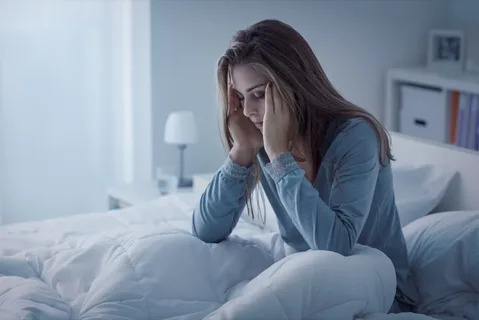First of all,
Managing anxiety can resemble navigating rough seas, with concern and uncertainty rising to the surface and threatening to overwhelm. Nevertheless, despite the difficulties, there are efficient pharmaceutical options intended to offer comfort and enable people on their path to mental health. This post will examine the current state of anxiety medication and provide tips, advice, and considerations for anyone looking for ways to control their anxiety.
Recognizing Anxiety and Its Effects:
Anxiety is a multifaceted and widespread mental health issue that can take many different forms, such as panic disorder, social anxiety disorder, generalized anxiety disorder (GAD), and particular phobias. The symptoms can include physical signs like sweating, shaking, and a fast heartbeat, as well as ongoing concern and fear. If treatment is not received, these symptoms may have a major negative influence on relationships, day-to-day functioning, and overall quality of life.
Types of Medication for Anxiety:
Selective Serotonin Reuptake Inhibitors (SSRIs):
SSRIs are frequently given for anxiety disorders. Examples of SSRIs include fluoxetine (Prozac), sertraline (Zoloft), and escitalopram (Lexapro). They function by raising serotonin levels in the brain, which over time can elevate mood and lessen symptoms of anxiety.
Serotonin-Norepinephrine Reuptake Inhibitors (SNRIs):
SNRIs that target both serotonin and norepinephrine, such as duloxetine (Cymbalta) and venlafaxine (Effexor XR), provide a dual mode of action for the treatment of depression and anxiety.
Benzodiazepines are fast-acting drugs that increase the relaxing and anxiety-reducing properties of GABA, a neurotransmitter. Examples of benzodiazepines include lorazepam (Ativan) and alprazolam (Xanax). Because of the possibility of dependency, they are usually used for temporary relief.
Beta-Blockers:
By preventing the effects of adrenaline, beta-blockers such as propranolol (Inderal) mainly target physical signs of anxiety such as trembling and an accelerated heartbeat.
Buspirone: Having a distinct mode of action, Buspirone (BuSpar) functions as both a dopamine antagonist and a serotonin agonist. Because of its decreased potential for addiction, it is frequently used as a benzodiazepine substitute.
The Function of Anxiety Drugs in Therapy:
By addressing neurotransmitter imbalances and reducing symptoms, anxiety medications are essential in the treatment of anxiety disorders. These drugs are frequently recommended as a part of an all-encompassing treatment strategy that could also involve self-care routines, lifestyle changes, and counseling.
Advantages of Taking Anxiety Medicine:
Symptom Relief:
People who use anxiety medication might have a considerable reduction in symptoms including anxiousness, excessive concern, and panic attacks. This helps people regain control over their emotions and day-to-day activities.
Better Functioning: Medication can help with everyday functioning, productivity, and participation in activities that one may have avoided before because of anxiety by lowering the symptoms of anxiety.
Enhanced Quality of Life:
People can enjoy a higher sense of general well-being, stronger relationships, and an enhanced quality of life while taking the appropriate prescription.
Prevention of Escalation: By offering early intervention and support, medication can help stop the worsening of anxiety symptoms and the emergence of more serious mental health issues.
Things to Think About When Taking Anxiety Medications:
Individual Response:
Depending on the individual, anxiety medications may or may not be useful. Collaborating closely with a healthcare practitioner is crucial in order to track your progress and make any modifications.
Adverse effects are a possibility with all drugs, including those for anxiety. These could include changes in appetite, nausea, vertigo, and sleepiness as well as sexual dysfunction. Talk to your doctor about possible side effects, and let them know about any worries you have as soon as possible.
Tolerance and Dependency:
When used excessively or over an extended period of time, many anxiety drugs—benzodiazepines in particular—can lead to tolerance and dependence. It’s critical to take these drugs as directed by your doctor and in close medical supervision.
Combination Techniques:
Therapy, such as exposure therapy or cognitive-behavioral therapy (CBT), is frequently used with anxiety medication. This combined strategy can support long-term recovery and increase therapeutic efficacy.
Choosing the Right Treatment:
Consultation and Assessment: First, get advice from a psychiatrist or other medical professional who specializes in mental health. They can prescribe the best drug and treatment plan after thoroughly evaluating your symptoms, medical history, and unique requirements.
Open Communication: Discuss your experiences, worries, and treatment objectives with your healthcare professional in an open and honest manner. Together, we can customize your treatment plan and take care of any problems or modifications that may arise along the road.
Observation and Modification:
Track your development on a regular basis when taking anxiety medication. Monitor any changes in your mood, symptoms, and potential adverse effects. This data can facilitate conversations with your healthcare physician and guarantee the best possible results from your therapy.
Changes to Your Lifestyle:
Make good lifestyle choices that promote mental health, such as frequent exercise, a well-balanced diet, enough sleep, stress management skills, and hobbies you like.
Taking Charge of the Journey:
It can be difficult to navigate anxiety and the various therapy choices available, but it’s crucial to keep in mind that you are not alone. You may empower yourself to effectively manage anxiety and enhance your general well-being by asking for help, remaining educated, and actively engaging in your treatment process.
In summary:
A useful tool in the all-encompassing treatment of anxiety disorders is anxiety medication. Through knowledge of the various drug options, consideration of important variables including individual response and side effects, and application of treatment tactics that work, people can take charge of their anxiety and get their lives back. Recall that asking for assistance is a show of strength, and managing anxiety may increase resilience and general wellbeing with the correct support and direction.


